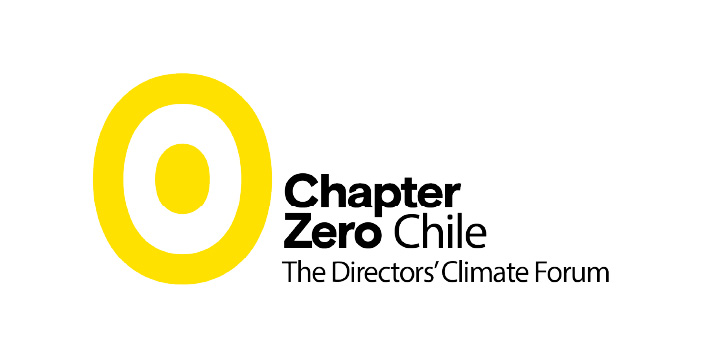Date: 23 March 2021

Host:
Chapter Zero Chile
Panellists:
- Carolina Schmidt Z. – Minister of the Environment of Chile
- Claudio Muñoz – Chairman, Aguas Andinas; and President of the Board, Chapter Zero Chile
- Macarena Navarrete – Country Managing Partner, EY Chile
- Juan Andrés Camus – Chairman, Santiago Stock Exchange
- Karen Poniachik – Director, Columbia Global Centers
- Cristián Rodríguez Chiffelle – Associate, David Rockefeller Center for Latin American Studies, Harvard University
According to the World Bank, the average annual temperatures in Chile are expected to increase by as much as 3.5°C by the end of the century, with rainfall projected to decrease by up to 9.3mm per month by the 2050s. Tackling climate change is an ethical, social and economic requirement worldwide, but in Chile, it’s especially urgent.
As a result of these alarming projections Chapter Zero Chile has been set up. An initiative from the Institute of Directors in Chile and EY, Chapter Zero Chile took the reins in the fourth panel on day two of the CGI’s Global Summit to explore the role of boards in making climate action a corporate reality.
“There is no sustainable strategy without considering climate change,” declared Luis Hernán Paúl. As such, the panel came up with two urgent steps businesses must first take:
- Identity the risk represented by climate change, as established by the Task Force on Climate-related Financial Disclosures (TCFD). Definite the actions needed to enhance resilience, supply chains and the customer base. (Determine the danger you face before working to avoid it)
- Develop a net-zero commitment and commercial strategy to take advantage of opportunities and future-proof products and services.
The panel also stressed the business opportunities that being climate aware can create; in just over a year, net-zero has gone from 0 to 68% of the global GDP. And it’s not just stakeholders who today demand environmental commitments – employees also need to be shown that their companies are serious about bringing about changes to protect the planet. In order to make decisions, both parties require good-quality financial data and access to that data, as highlighted by the Organisation for Economic Cooperation and Development (OECD).
Transparency is key. Businesses need to design objectives and strategies regarding climate change in yearly board meetings, the panellists argued. Once the plans are visible, their results can be studied to determine whether they are on track – failure of which could result in damaged reputation and management proposals being rejected.
Chapter Zero Chile’s purpose is to help equip boards with the knowledge and tools to meet their fiduciary duty to assess, mitigate, and make climate change transparent for the market. That needs to begin with big corporations, the panel said, with every part of organisations’ ecosystems collaborating and working towards the same pressing crisis.